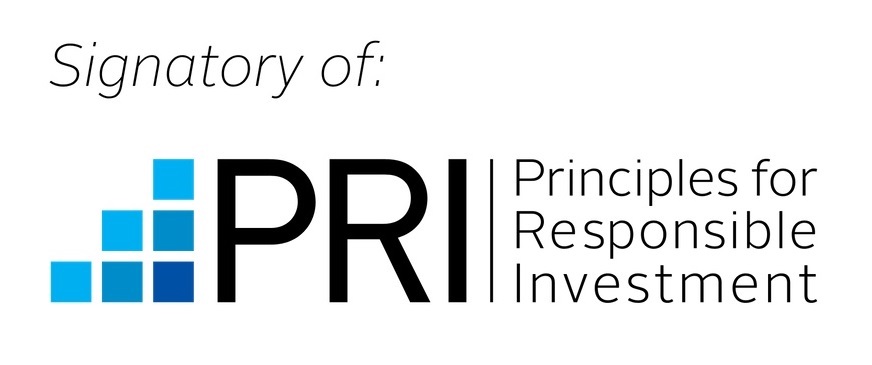How managers are being pressured to incorporate DEI into their investment activities
One of the biggest challenges for fund managers in 2021 was addressing concerns about diversity, equity and inclusion (DEI), both at the investment level and at the enterprise level. While the DEI conversation itself is not new, the combination of growing awareness of inequalities and increasingly vocal demands for social justice has created an undercurrent of urgency that has spread to every corner of the asset management industry.
How fund managers respond to these calls for action may well determine if they are able to continue to attract both investor capital and talent.
In this two-part series, we examine how managers are facing pressure from regulators, investors, and employees to improve their DEI efforts. We will also offer recommendations on how fund managers can make tangible progress on DEI initiatives both in their investment and business activities.
This first part explores how fund managers are increasingly expected to integrate DEI considerations into their investment strategy, often as part of an Environmental, Social and Governance (ESG) program or other sustainability mandate.
Managers are expected to integrate DEI considerations into their investment activities
Fund managers routinely consider a wide range of factors that may affect financial performance. While traditional investment factors like value and momentum will always be critical, managers are increasingly expected to consider sustainability factors, such as a company’s carbon footprint and the diversity of senior leadership.
There has been significant progress at standardizing climate-related data in recent years thanks to organizations like the Task Force on Climate-related Financial Disclosures (TCFD) and Carbon Disclosure Project (now known as CDP), and collaborations like the International Sustainability Standards Board (ISSB) and the Glasgow Financial Alliance for Net Zero (GFANZ). It’s no surprise that there has been a parallel increase in funds that take climate considerations into account.
The same transformation is now happening when it comes to DEI issues, which are often categorized under the ‘S’ of ESG. Both regulators and investors expect market participants to take DEI seriously, with regulators focused on improving DEI disclosures and investors calling on their managers to integrate DEI considerations into investment decision-making.
U.S. regulators begin to mandate DEI disclosures
For the first time, U.S. financial regulators are taking a position on the need for increased transparency related to diversity metrics.
In August 2021, the Securities and Exchange Commission (SEC) approved Nasdaq’s proposed rules (Rules 5605(f) and Rule 5606) related to board diversity and disclosure. The rules, which were first proposed in December 2020, take a “comply or explain” approach that requires Nasdaq-listed companies to publicly disclose the gender and racial diversity of their boards or explain in writing why they do not meet these requirements. According to the rules, each company must have at least two diverse directors, including at least one director who self identifies as female, in addition to a director who self-identifies as an underrepresented minority (i.e., person of color) or LGBTQ+. The new rules further require companies to publicly disclose board diversity statistics annually, including gender and demographic data.
The new Nasdaq rules are a testament to the growing interest by investors in addressing diversity and other ESG issues at the board level. In a statement on the Commission’s approval of the rules, Chair Gary Gensler said “these rules will allow investors to gain a better understanding of Nasdaq-listed companies’ approach to board diversity, while ensuring that those companies have the flexibility to make decisions that best serve their shareholders,” noting the rules “reflect calls from investors for greater transparency about the people who lead public companies.”
This follows similar remarks by SEC Commissioner Allison Herren Lee at the Council of Institutional Investors Fall 2020 Conference, where she said that the SEC needs to do more in terms of a specific mandate for diversity disclosure and recognizing that “influencing corporate behavior is an appropriate aim of [their] regulation.” Lee added that the Commission should consider revisiting its amendments to Regulation S-K to require disclosure of workforce diversity data at all levels of seniority, as well as strengthen its 2018 guidance on disclosure of board candidate diversity characteristics.
While these rules don’t yet directly affect fund managers (besides those that may be publicly listed), the existence of diversity data for more than 3,000 public companies means that we are moving closer to having a rich dataset that will allow managers to more fully incorporate their DEI philosophy into investment decision-making.
Fund managers should also be prepared for the possibility that the SEC may propose new rules for diversity disclosures that could apply to all Registered Investment Advisers (RIAs). In a potential sign of things to come, the SEC’s Asset Management Advisory Committee (AMAC) in July 2021 issued a series of recommendations designed to enhance disclosures of ESG and DEI factors, including a recommendation that the SEC should suggest best practices for investment product disclosures.
Investors push managers to incorporate DEI into investment decision-making
A growing number of Investors want their fund managers to integrate DEI considerations into their investment analysis and portfolio management. In the case of private fund managers, there is also an expectation that managers engage with portfolio companies and issuers on DEI issues – for instance, by encouraging more female and racially diverse representation in senior management.
A recent report published by the Institutional Limited Partners Association (ILPA) shows just how far DEI has moved up on the agenda for both LPs and GPs. Consider that 54% of GPs annually collect DEI metrics from portfolio companies, while 59% of LPs/allocators do the same with their managers. An even greater number of GPs (72%) promote diversity within portfolio company boards, with 28% having set minimum targets for board level diversity.
There has also been significant momentum on DEI in the form of several recent industry announcements and collaborations.
In September 2021, a group of LPs and GPs in private equity launched the ESG Data Convergence Project in cooperation with ILPA and the Boston Consulting Group to streamline what data is collected from portfolio companies, with a focus on six key ESG metrics such as board diversity and employee engagement.
In October 2021, a consortium of philanthropy and business leaders helped launch Novata, a public benefit corporation that is building an ESG database for private markets investors and firms. Novata’s ESG framework features 10 specific metrics, including employee engagement, diversity, and inclusion.
Also founded in 2021 is Ownership Works, a new nonprofit working to “to scale shared ownership as a means of addressing economic insecurity among employees, narrowing the racial and gender wealth gaps, and strengthening companies and communities in the process.” The organization plans to work with public and private investors and companies to implement shared ownership programs.
While these are each independent efforts, the pace and scale of change shows that DEI needs to be top-of-mind for fund managers.
Recommendations for fund managers to keep up with DEI demands
As with ESG, there is no one-size-fits-all approach when it comes to DEI. While there is now more DEI data available than ever–with the dataset growing at an exponential rate–private fund managers should think about how DEI fits into their respective investment strategies. Specifically, managers should consider the following:
- Develop a DEI policy or statement that clearly states targets for portfolio companies, or minimum criteria for issuers (e.g., at least 50% female representation in senior management, at least two people of color on the board, all workers paid a living wage, etc.)
- Collect DEI data and regularly report on DEI progress across the portfolio. Where possible, this data should be compared to previous years’ performance and put in the context of industry averages. For example, does a particular company have better diversity than other companies in its sector, or among all companies?
- Collaborate with other managers to share DEI data. Both the ESG Data Convergence Project and Novata are open to all private fund managers, and they offer publicly available reporting frameworks that can be used to help standardize DEI data.
Be on the lookout for our next article in this two-part series, set to be published in February, which will cover how fund managers also face pressure from investors and employees to improve how they address DEI concerns at the enterprise level. This includes a specific focus on how to promote diverse representation across the firm and how to institute policies to ensure workers are treated fairly.


